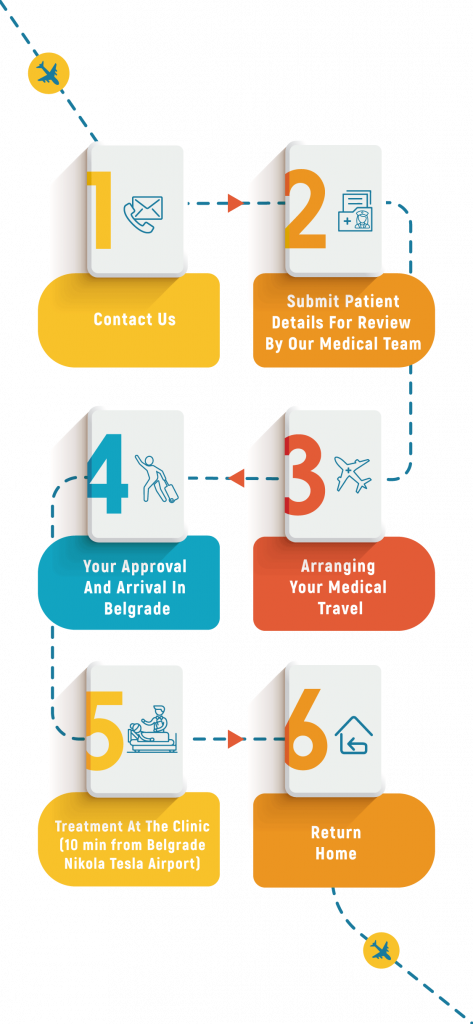Treatments fall into two major categories: educational interventions and medical management. More than half of the children diagnosed with Autism are prescribed psychoactive drugs or anticonvulsants. They respond typically to medication which can have adverse side effects, and until today there is no known medical which relieves the core symptoms of Autism. Stem cell therapy is an effective approach to treating Autism which is based on the unique ability of stem cells to influence the metabolism and immune system and restore damaged cells and tissues.
Treatment positively affects all body organs and systems, including the central part – the brain. When Autism is diagnosed, areas of the brain regulating memory, concentration, attention and speech are damaged. Stem cell treatment improves blood and oxygen flow to the brain (improved perfusion), replaces damaged neurons and stimulates the formation of new arteries.
After some time, stem cells acquire properties of cells surrounding them and multiply into these cells, which results in white and grey matter restoration and, consequently, in subsidence of neurologic symptoms and improved intellectual capacity. It has been proven that mesenchymal stem cells improve the immune system and eliminate inflammation.
Since 2014, we have been developing and optimising our stem cell treatment protocols with the concept that only a comprehensive solution can truly allow our patients to benefit from stem cell treatment. We believe that stimulation through various therapies is necessary to enhance stem cell regenerative response. Therefore our protocols include daily therapies to support the effectiveness of stem cell treatment. We have state-of-the-art equipment to deliver highly concentrated stem cell solution derived from the patient’s own body.
Our Doctors have been instrumental in developing and enhancing currently available stem cell therapies. We embrace research and have our research team enhance techniques for harvesting and processing stem cells to achieve the maximum efficacy for the treatment of Autism. We audit and evaluate our data, and our team of specialists use this data to continuously improve overall processes and procedures to deliver the best possible patient outcomes.
We have treated over 1 500 children for Autism Spectrum Disorders and have had no complications to date.
The goal of our stem cell treatment for Autism is to help restore neurological functions and stabilise the immune system. Up to 80% of repair is seen in our patients. Various kinds of improvement are possible after our stem cell treatment for Autism, and our past patients have experienced the following:
It is important to remember that, as for any medical treatment, improvements cannot be guaranteed. It varies from person to person. Find out more about our services and how we can treat or improve any particular symptoms.
Over the years, many connections have been made between the gut and the brain. Autism, though considered a neurological condition, has been found to be linked to pathology in the digestive tract. Most children with Autism are also found to have problems with digestion and fewer types of bacteria in their guts than other children. Furthermore, studies suggest that when this gut diversity is corrected, not only will digestion problems subside but also associated neurological symptoms.
Stem Cell Treatment in Autism – Journal of Translational Medicine
Proper follow-up is an essential part of stem cell treatment for Autism. Our primary goal is to ensure that your child progresses safely with us over a 12-month follow-up period. Regular follow-up also enables us to evaluate the efficacy and improve our Autism treatment protocols based on observed outcomes. Therefore, our medical staff will contact you regularly to monitor your child’s progress, including visits to our clinic. We also are involved with other rehabilitation professionals to facilitate an overall holistic approach.
You may request a brochure here or contact us by email.

Request a brochure and find out how Regenerative treatments can benefit you.

The body naturally produces Regenerative Cells, and they have the ability to grow, mature and contribute to their surrounding environment (after injection)
Medical tourism packages are available, including airport pick up/drop off & accommodation.
We will be with you every step of the way!


Our team has the right skills, knowledge and expertise in treating children with Autism making us one of the leading centres in the world using regenerative treatments for children with Autism.